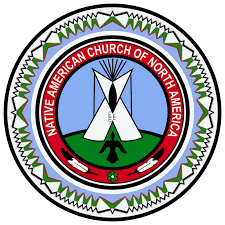
- Details
- By Darren Thompson
Dorsey & Whitney, LLP filed a lawsuit on Feb. 6 on behalf of the NACNA chapter, Lac du Flambeau-based Mashkiki Boodawaaning, Inc., in the Western District Court of Wisconsin against the Chippewa Valley Agency, Ltd. The complaint was amended on Tuesday, Mar. 21.
In the lawsuit, Mashkiki Boodawaaning alleges that the financial institution discriminated against it based solely on the use of peyote. The American Indian Religious Freedom Act’s Amendment in 1994 and Wisconsin’s Uniform Controlled Substances Act permits the use, transportation and ingestion of peyote for ceremonies by enrolled citizens of federally recognized tribes and members of NACNA.
The lawsuit alleges that the Mashkiki Boodawaaning — or Medicine Fireplace in the Ojibwe language — attempted to open a commercial bank account on Mar. 30, 2022 at a chapter of Chippewa Valley Bank located on the Lac du Flambeau reservation.
The organization was denied opening a commercial bank account based solely on the use of peyote when Mashkiki Boodawaaning representative Charles Carufel (Lac du Flambeau Band of Lake Superior Chippewa Indians) applied for a commercial bank account and was denied.
The filing states, “Shortly after the initial denial, Jessica Wiles, a supervisor in the Chippewa Valley Bank Bruce, Wisconsin branch, called Mr. Carufel. Ms. Wiles reiterated that the denial of Medicine Fireplace’s application was due to the organization’s peyote use.”
“We’re suing to open a bank account and feel that the denial to open an account is racial and religious discrimination,” Forrest Tahdooahnippah, counsel for Mashkiki Boodawaaning, told Native News Online. “We hope they open an account for us, and their response shows they are misinformed on the legal status of peyote.”
Mashkiki Boodawaaning was founded in 2020 to preserve and nurture important religious and cultural ceremonies. Its membership is comprised exclusively of enrolled citizens of federally recognized tribes.
“A financial institution is discriminating against their own by being ignorant about the medicine peyote,” said Charles Carufel in an interview with Native News Online. “We want our young people to come to have a spiritual foundation through the medicine.”
The bank’s manager declined to provide a comment to Native News Online because the matter was currently in federal court.
The bank’s attorneys, Christopher K. Schuele and Robert S. Driscoll have asked the Western District of Wisconsin to dismiss the case. They say Mashkiki Boodawaaning’s complaint contains no factual allegations that the bank discriminated against the organization solely on its Native American identity or religious affiliation.
They wrote in a Feb. 28 brief that “the allegations in the Complaint support only one conclusion—that the bank knew Medicine Fireplace was affiliated with the Native American Church of North America and denied Medicine Fireplace’s application because of Medicine Fireplace’s use of peyote and certain risks and oversight requirements associated with it opening a business checking account. On its face, that reason is unrelated to race.”
They also wrote that opening a bank account puts the bank at risk and compliance obligations as required by federal law.
More Stories Like This
Native News Weekly (August 25, 2024): D.C. BriefsUS Presidents in Their Own Words Concerning American Indians
Native America Celebrates the Winter Solstice
Tlingit & Haida Launch New Foundation to Support Education, Wellness
Michigan Attorney General Opens Criminal Investigation into Indian Boarding Schools
Help us defend tribal sovereignty.
At Native News Online, our mission is rooted in telling the stories that strengthen sovereignty and uplift Indigenous voices — not just at year’s end, but every single day.
Because of your generosity last year, we were able to keep our reporters on the ground in tribal communities, at national gatherings and in the halls of Congress — covering the issues that matter most to Indian Country: sovereignty, culture, education, health and economic opportunity.
That support sustained us through a tough year in 2025. Now, as we look to the year ahead, we need your help right now to ensure warrior journalism remains strong — reporting that defends tribal sovereignty, amplifies Native truth, and holds power accountable.
 The stakes couldn't be higher. Your support keeps Native voices heard, Native stories told and Native sovereignty defended.
The stakes couldn't be higher. Your support keeps Native voices heard, Native stories told and Native sovereignty defended.
Stand with Warrior Journalism today.
Levi Rickert (Potawatomi), Editor & Publisher

